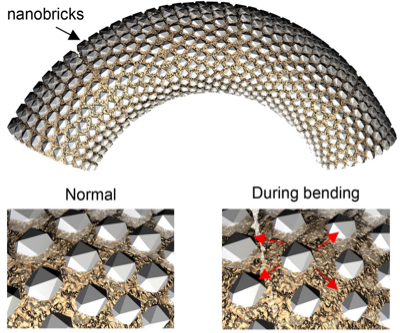German researchers develop mineral as flexible as rubber

German scientists have created a new synthetic hybrid material with a 90% mineral content that is a malleable as rubber.
The experts at Johannes Gutenberg University Mainz and the Max Planck Institute for Polymer Research, who describe the highly unusual characteristic of their invention in the current issue of Science, say they imitated the structural elements found in most sea sponges, called “spicules.”
Using the natural mineral calcium carbonate and a protein of a sea sponge, the researchers recreated its spicules, which turned out to be superior in terms of flexibility than their natural counterparts, to the point where the team was able to bend them without breaking or showing any signs of fracture.
Other than being extremely elastic, the new material is able to transmit light waves even when it is bent.
Experts believe their invention could be a good replacement for asbestos, especially when it comes to their use in the construction industry.
{{ commodity.name }}
{{ post.title }}
{{ post.date }}




Comments